Stories of Impact
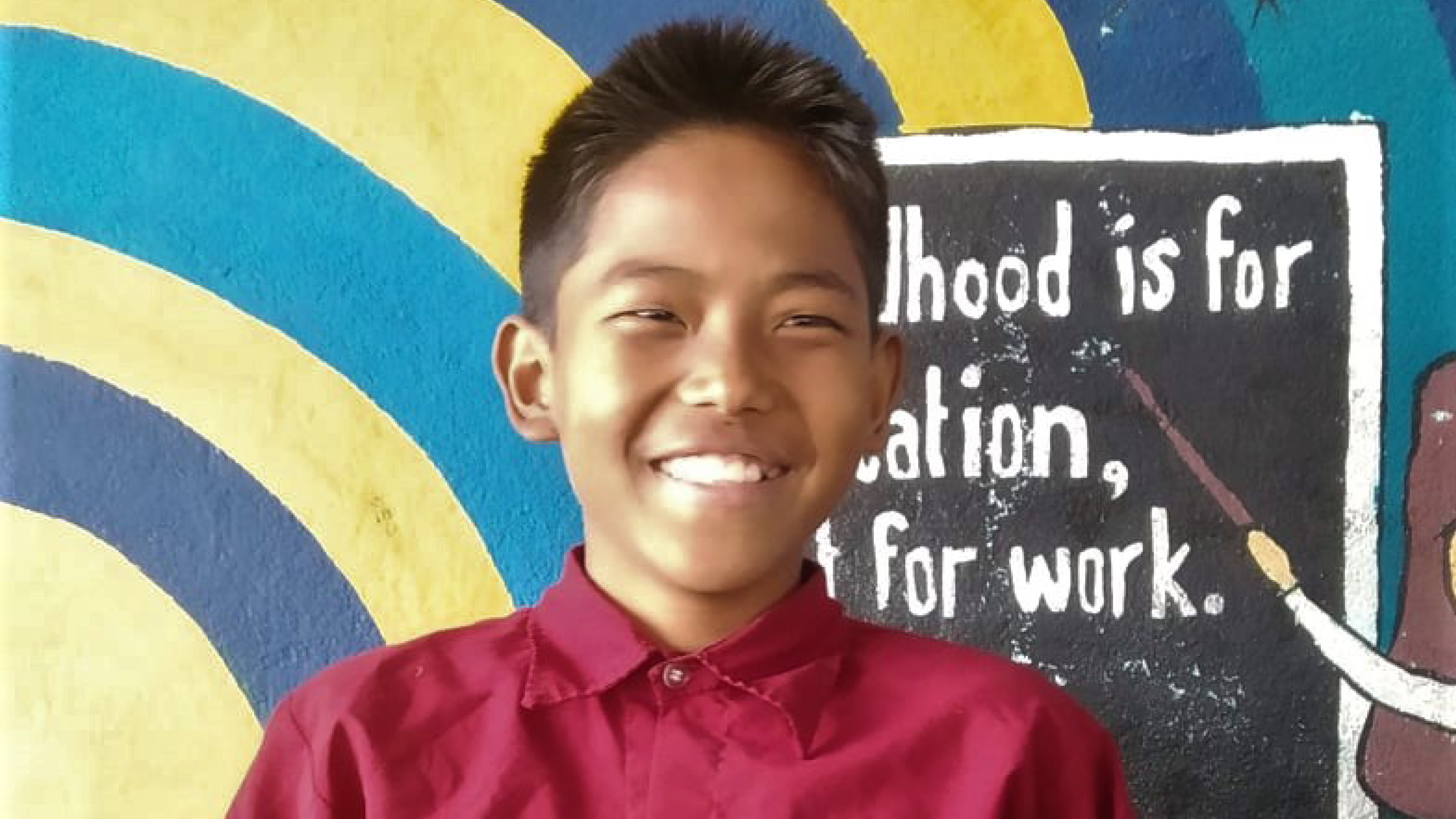
Kabir: The GoodWeave System at work
When Kabir was a child, his father abandoned his family for another woman. When his mother remarried, his stepfather rejected him – first sending him to live with his maternal uncle in the same village and then, when he was 13-years-old, he sent him to Kathmandu.
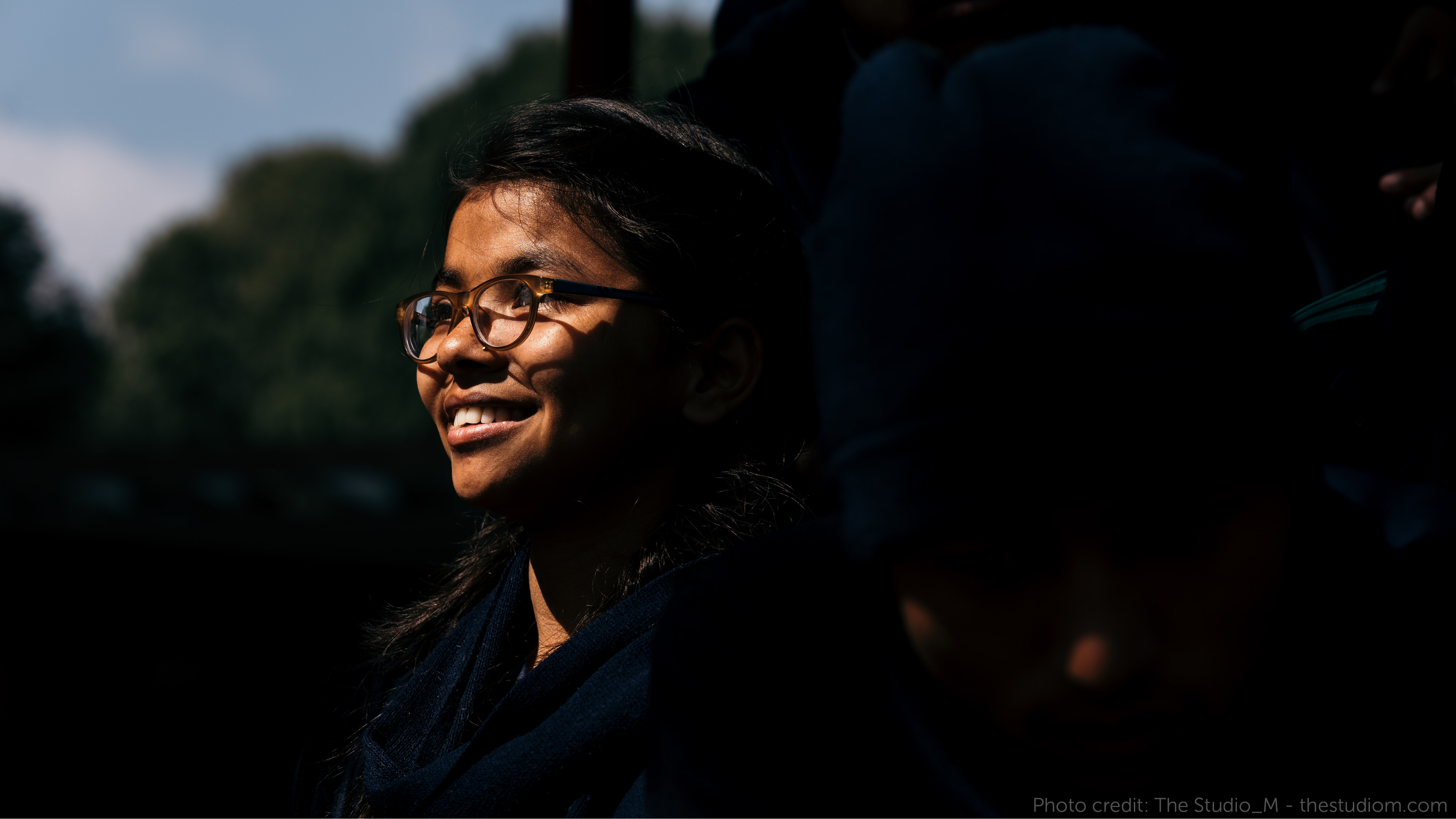
Sumitra: Her personal tragedy inspires dreams of caregiving
When Sumitra’s family moved from their village in Southern Nepal to the capital Kathmandu looking for a better opportunity, she had to drop out of school. Eventually both her parents and her sister found work as carpet weavers.
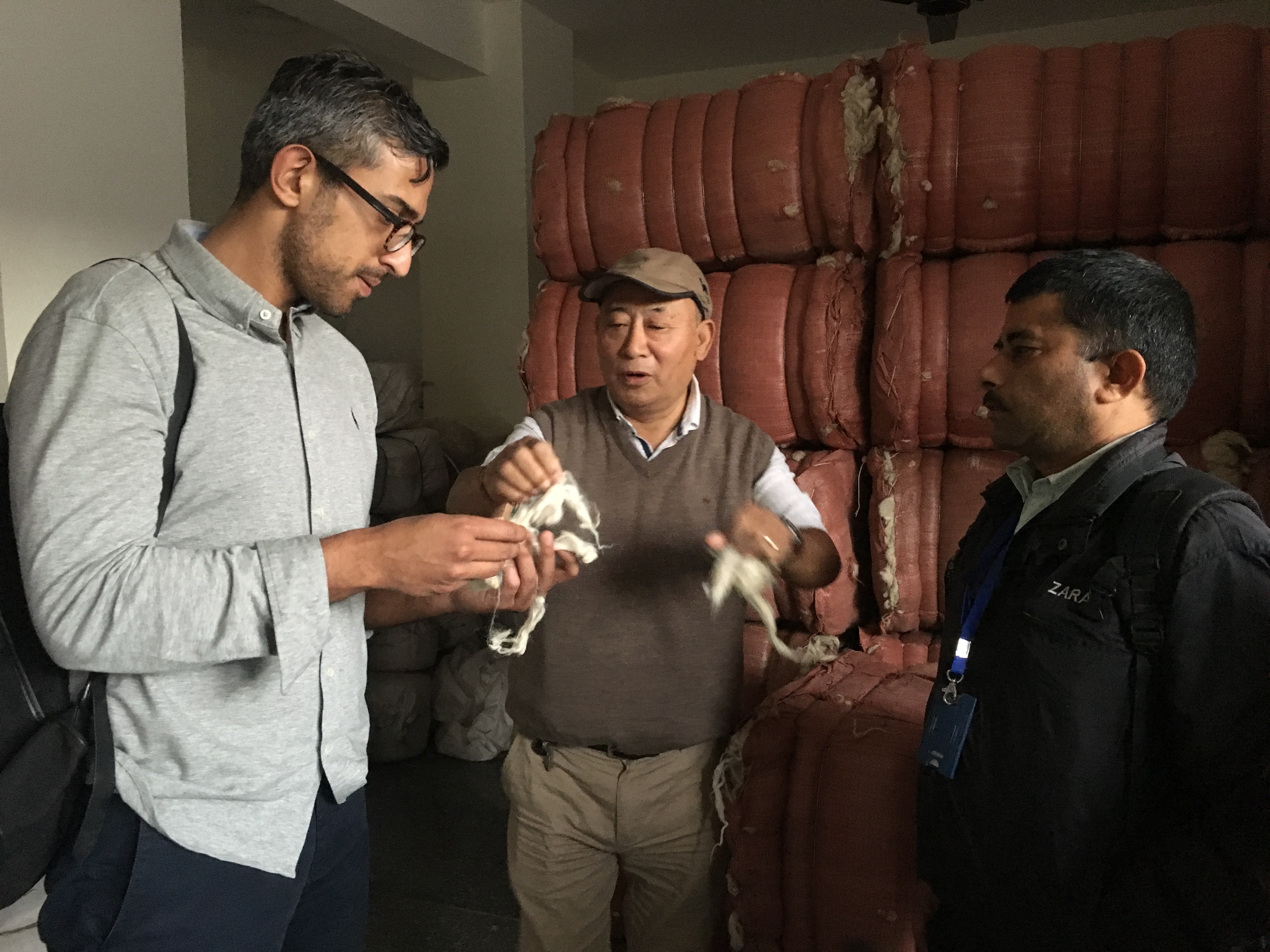
Notes from Nepal
Amol Mehra, one of our Board of Directors wrote about his recent journey from an incredible four days with Kate Francis, the Senior Advisor to GooodWeave International, in Nepal. Here, he shares how profound the experience was to meet with the GoodWeave Nepal staff, tour licensee factories and even to see an unlicensed factory where children were toiling away right in front of their eyes.
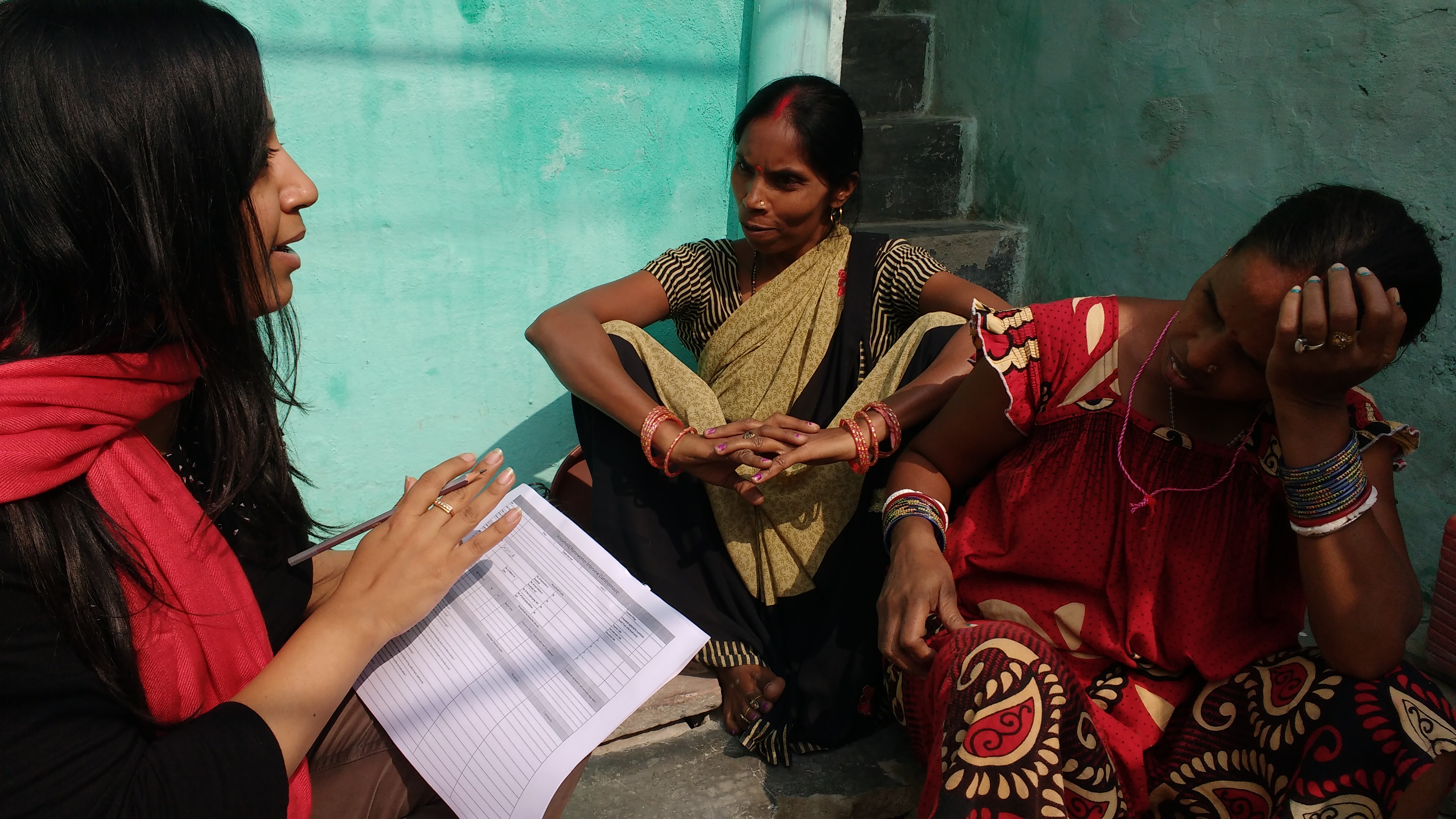
GoodWeave India’s Frontline Leader Vinti
One way that GoodWeave differentiates itself is with its inspections staff. They have deep experience and are rooted in the communities in which they work. Originally from Ghaziabad, Uttar Pradesh in India, Vinti Singal, one of our Supply Chain Sustainability Specialists, has worked on human resources and social compliance teams for a decade.
While consulting with Coca Cola on workplace rights, she gained exposure to the brand side of the story. At the French retailer Gémo-Groupe Eram, Vinti managed factory audits for North India. With this broad perspective – from global CSR to the informal laborer – she wanted to join GoodWeave and help spearhead its pilot program into the readymade garment sector.
“When I joined GoodWeave, I knew it was different. We aren’t just an auditing agency with findings and issues. We are the ones who want to resolve them. Our work doesn’t end the moment we find an issue of child or forced labor. That’s where it starts. It isn’t audits and compiling results. It is about standards.”
For Vinti, it goes even deeper. She values the process of unearthing hidden units beyond the borders of the factories. Because in doing so, she knows we can give an identity – and then rights and benefits – to informal workers. And Vinti also recognizes how this benefits the business. She has seen that threatening or penalizing companies isn’t the answer; it’s about encouraging improvement and transparency.
When asked about her most memorable day on the job, Vinti recalls visiting a Child Friendly Community in Jaee village where GoodWeave started a literacy class for young women who never had a chance to study. Scanning the room, one woman immediately stood out to her. She was holding a three-week-old baby. Later Vinti found out that her name is Musrekin, this was her eighth child, and she does handwork, beading fashion jewelry for export to big brands in Europe, UK and US.
Out of respect for their privacy, we do not have a photo of Muskekin and her baby, but Vinti painted a strong picture of who Muskekin is as a person: “Despite the challenges and she just delivered a baby, here she is attending class. There is no incentive for work or money. That, in itself, speaks volumes. I can’t calculate the financial value of her attending this class or tell what she learned, apart from that she feels empowered. Sometimes we talk about return on investment too much, and you can’t calculate the benefit on this person’s life.”
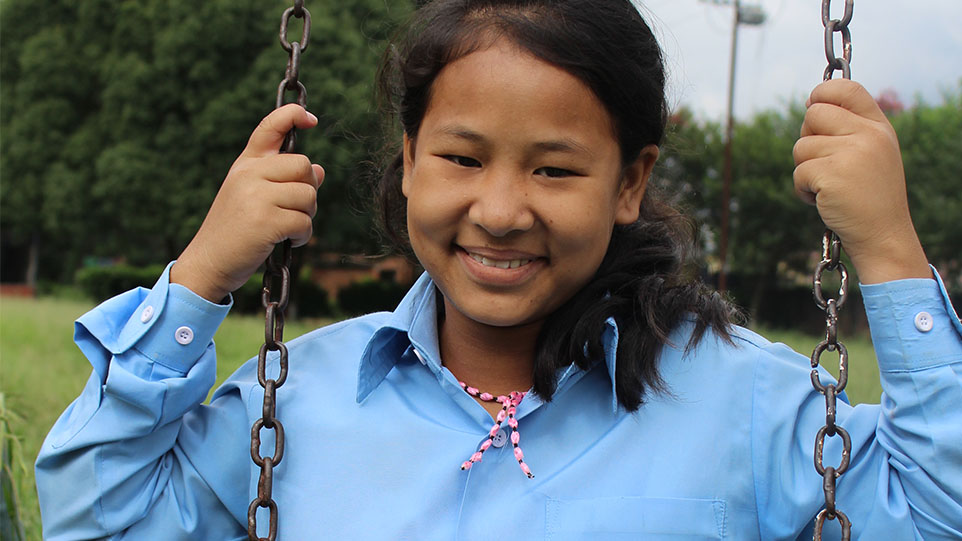
Nirmala’s True Story Begins Now
Nirmala was the only daughter born to a very poor family of farmers in rural Nepal. There was not a single day when there was enough food for all of them. Some days, there was none and she would go to bed hungry.
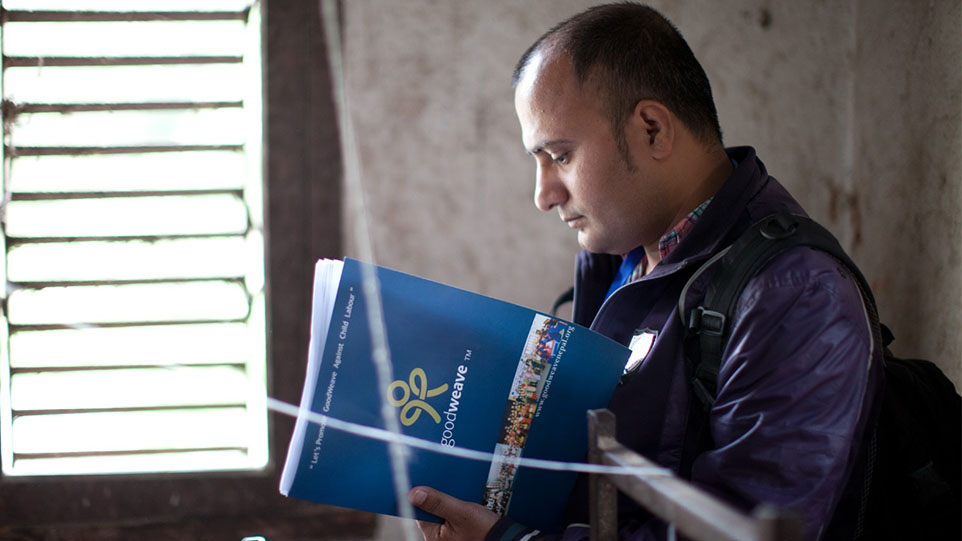
Jyoti’s Motto: Work and Live for Others, Not Just Ourselves
Born in a semi-urban farming area 350 miles east of Kathmandu, Jyoti Raj works as an inspector for Nepal GoodWeave Foundation. He lives with his extended family, all of whom depend on him. Each workday, he inspects rug production sites, talking to owners and workers and raising awareness about the rights of children. He also checks in on how the rescued children are doing at GoodWeave’s community-based rehabilitation programs.
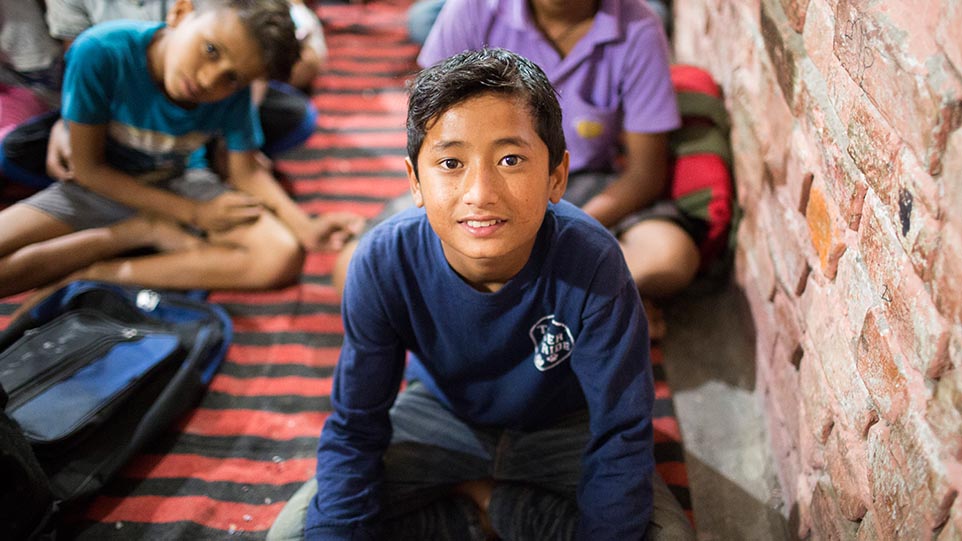
Sudhir: Choosing His Own Path
GoodWeave-supported Motivation and Learning Camps (MLCs) were established to help bring the benefit of schooling in rural villages in India where children are especially vulnerable to exploitation. The MLCs are crucial in bridging the education gap between at-risk children and the rest of their school-going peers, which can become a key factor in allowing these children the ability to choose their own path—as exemplified by a young boy named Sudhir.
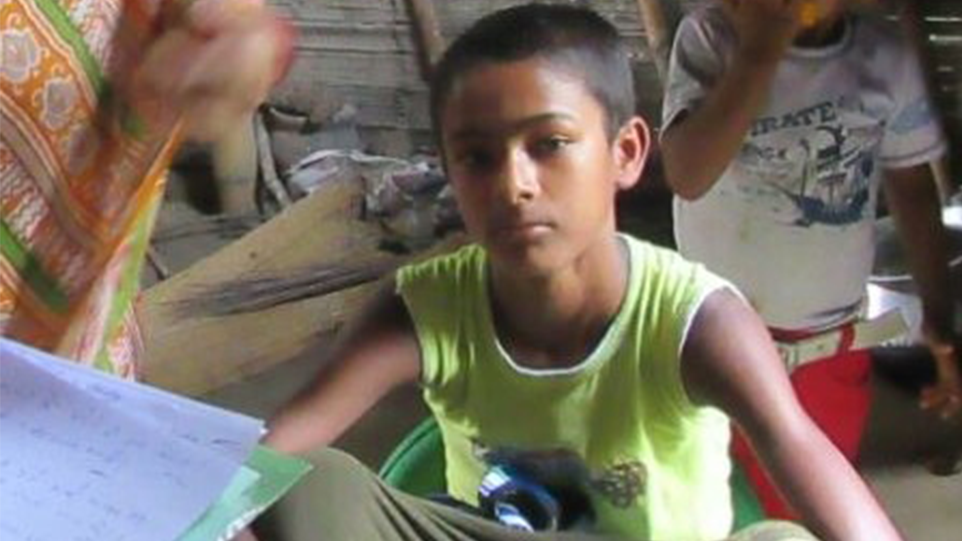
Samrul: From Hostility to Genuine Gratitude
When GoodWeave’s inspectors found Samrul working at a dingy carpet loom in Uttar Pradesh, India, they were greeted with confusion—and even hostility—from the 15-year-old they were trying to help. It was a perfect illustration of just how complex the issue of child labor can be when it’s driven by sheer economic desperation.
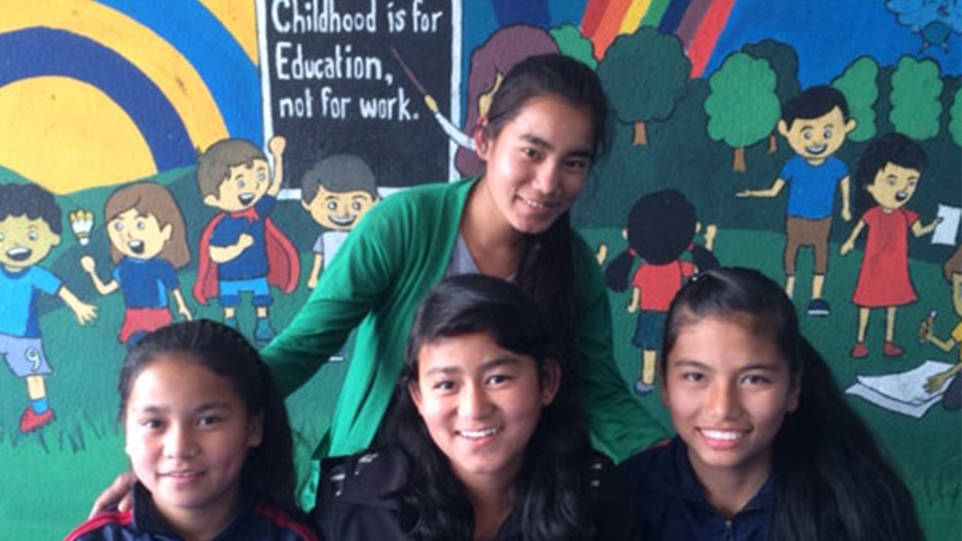
Tila: From a Loom To a Classroom—As a Teacher
Tila was raised in the village of Gloche, in Nepal’s Sindhupalchowk district. Like so many children who end up working in Nepalese carpet factories, her family history is marked by tragedy. In Tila’s case, it took the form of an alcoholic and abusive father who would regularly beat her, her mother, and her three siblings.
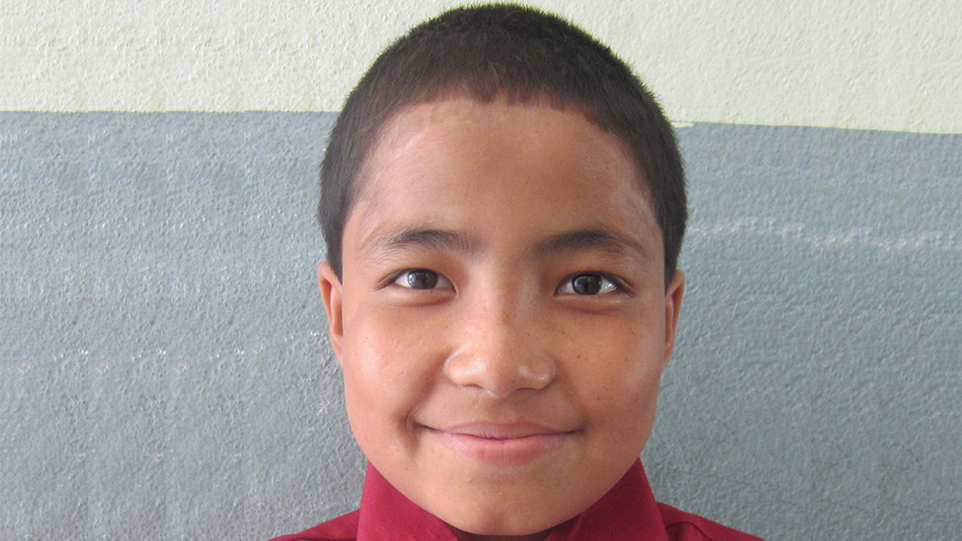
Binod Didn’t Run
Watching Binod as he laughs and kicks a soccer ball around with his friends in the dusty yard at Hamro Ghar, GoodWeave’s Khathmandu refuge for rescued child workers, it’s easy enough to convince yourself that you’re looking at a normal Nepalese kid at play. But while he may be busy trying to live a normal childhood, there’s nothing normal about his past.
